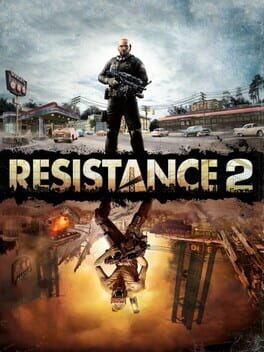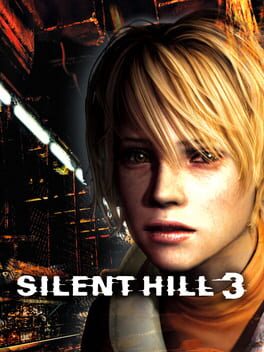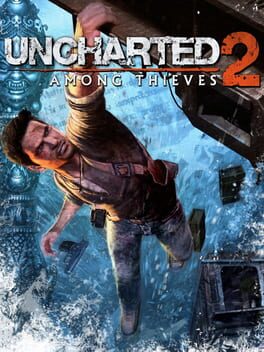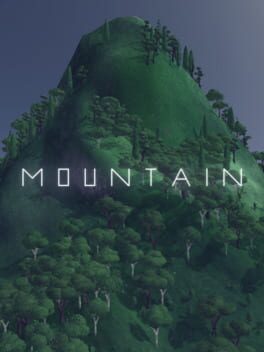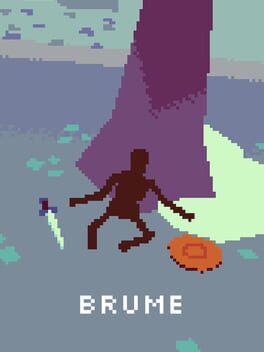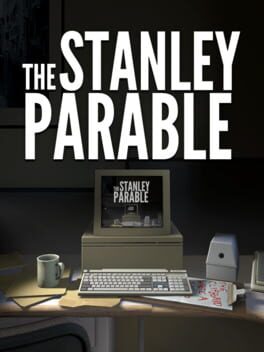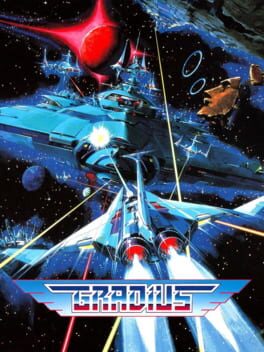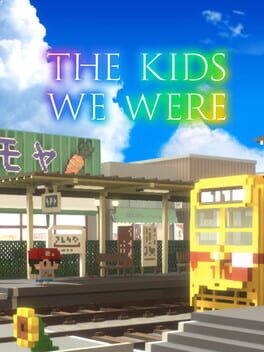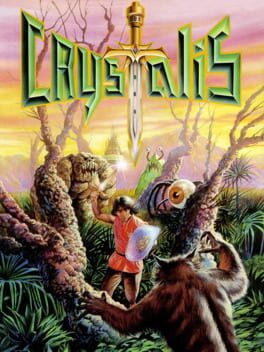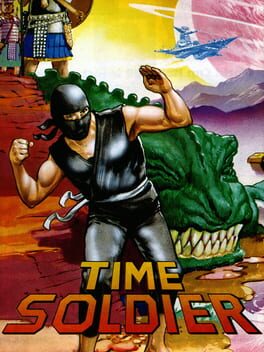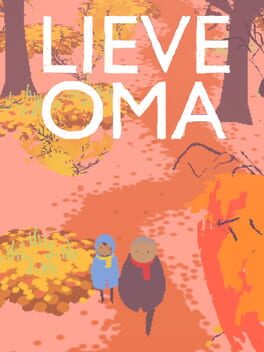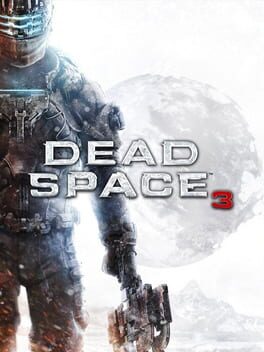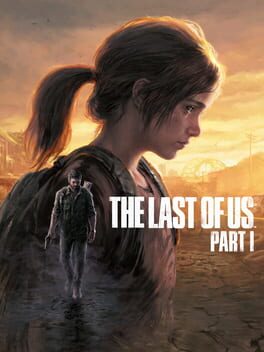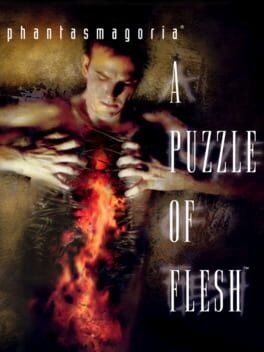2008
Si el primer juego quería ser una mezcla entre Halo y Call of Duty, el segundo imita el mismo estilo que Halos más tardíos y juegos de disparos medio de terror tomarían más tarde. Como resultado, a pesar de sentirse mejor diseñado, se mantiene igual de aburrido y poco inspirado. Me molesta especialmente la manera que intenta relegar su historia y caracterización a los documentos que agarras por el camino, como si la necesidad de dotar al mundo de una razón de ser que fuera más allá de las manidas secuencias de acción no valiera de mucho.
----------------------------------------------------------------------------
If the first game tried to be a mixture between Halo and Call of Duty, the second imitates the same style that later Halos and semi-horror shooters would take. As a result, despite feeling better designed, it remains as boring and uninspired as ever. I'm particularly irked by the way it tries to push all its story and characterization to the Intel you pick up, as if creating a compelling narrative to the boring action sequences was just an afterthought.
----------------------------------------------------------------------------
If the first game tried to be a mixture between Halo and Call of Duty, the second imitates the same style that later Halos and semi-horror shooters would take. As a result, despite feeling better designed, it remains as boring and uninspired as ever. I'm particularly irked by the way it tries to push all its story and characterization to the Intel you pick up, as if creating a compelling narrative to the boring action sequences was just an afterthought.
2003
While SH2 gets all the praise for its unique atmosphere and its tight theming, Silent Hill 3 seems more interested in providing a funny and spooky ride that manages to percolate some vague symbolism about teenage womanhood. This works mostly due to the impecable localization (which went far above the call of duty to make Heather one of the best protagonists of all time, period) and the game putting you in increasingly surreal situations.
The associative style of this game can feel disappointing if you're coming from the dense package of the previous title, but as a horror, it's one of the best ones by far. In a way, this game can feel stronger than the rest because it delivers its symbols up front and lets you wallow in them for long periods of the time.
The associative style of this game can feel disappointing if you're coming from the dense package of the previous title, but as a horror, it's one of the best ones by far. In a way, this game can feel stronger than the rest because it delivers its symbols up front and lets you wallow in them for long periods of the time.
No sé por dónde empezar. Uncharted: Drake's Fortune es, pese a todos los defectos que le veo, una aventurilla al uso de plataformas limitado y acción simplona, que cuanto menos se deja jugar. Uncharted 2, como todas las secuelas triple A, trata de incluir más cosas, y en el camino se convierte en un batiburrillo incoherente de ideas y elementos que puedes encontrar mejor expresados en cualquier otro lado. Esto hace que, para mí, recomendar el juego en base a su mérito lúdico resulte imposible. Las secciones de sigilo apenas permiten variedad y se suelen limitar a seguir el camino trazado de antemano, los puzzles son poco más que un juego de memorización y espera, y las armas se solapan entre sí. La oportunidad de desarrollar estrategias personales de combate, que podrían tener sentido dado el carácter más de arena que tienen esas secuencias, ofrece cierto dinamismo en los modos más difíciles, pero el ridículo modo Brutal te fuerza a situaciones de completo desgaste, donde la única opción aceptable es quedarte en una esquina y rezar porque no te llegue una bala suelta (jugar estos niveles de dificultad sin trucos es imposible).
Todo esto hace que jugar a Uncharted 2 sea más molesto que el estilo simple pero, al menos, directo, del primero, pero si a eso le sumas una narración que sólo puedo calificar como de "culpa blanca a lo Josh Whedon", acabas con un relato reducido a mero espectáculo visual y que, a pesar de todo, no puede evitar esconder la cochambre sobre la que está montado. Por encima de todo, hace relucir la prepotencia detrás de su concepción. Un proyecto que, cuanto más lo intenta, más vacío parece. La próxima vez que alguien me diga que este tipo de juegos son necesarios para un público que no esté acostumbrado a jugar, por lo menos que me lo defienda con un casting más soportable.
------------------------------------------
Don't know where to start with this. For all its flaws, Uncharted: Drake's Fortune is a competent adventure game with limited platforming and basic action, and it leans itself to be enjoyed. Uncharted 2, like every triple A sequels, attempts to go bigger, becoming an incoherent hodgepodge of ideas that you can find better expressed elsewhere. This makes recommending the game on its mechanical terms impossible for me. Stealth sections barely allow for expression and are often limited to following the path laid out before you, puzzles are little more than a game of memorization and waiting, and weapons overlap with each other. The opportunity to develop a combat strategy makes sense with the arena-styled sections, and it offers some dynamism in harder difficultires. But the preposterous Brutal setting constantly forces you into a stalemate, where the only acceptable option is standing by a corner and praying that you won't get hit (honestly, playing this mode without cheats is impossible).
All of this makes playing Uncharted 2 more annoying than the first one on mechanical terms alone. But when you compound add with a narrative that I can only describe as "White Guilt Josh Whedon", you end up with a work that's barely anything more substantive than snippets of visual spectacle. For all its glitz, this game can't hide the rot behind its façade, and in a way it makes its authors possessed by an even higher hubris. The next time someone tells me that this kind of games are necessary for non-playing audiences, I'm gonna ask to come up with something better than this unbearable casting.
Todo esto hace que jugar a Uncharted 2 sea más molesto que el estilo simple pero, al menos, directo, del primero, pero si a eso le sumas una narración que sólo puedo calificar como de "culpa blanca a lo Josh Whedon", acabas con un relato reducido a mero espectáculo visual y que, a pesar de todo, no puede evitar esconder la cochambre sobre la que está montado. Por encima de todo, hace relucir la prepotencia detrás de su concepción. Un proyecto que, cuanto más lo intenta, más vacío parece. La próxima vez que alguien me diga que este tipo de juegos son necesarios para un público que no esté acostumbrado a jugar, por lo menos que me lo defienda con un casting más soportable.
------------------------------------------
Don't know where to start with this. For all its flaws, Uncharted: Drake's Fortune is a competent adventure game with limited platforming and basic action, and it leans itself to be enjoyed. Uncharted 2, like every triple A sequels, attempts to go bigger, becoming an incoherent hodgepodge of ideas that you can find better expressed elsewhere. This makes recommending the game on its mechanical terms impossible for me. Stealth sections barely allow for expression and are often limited to following the path laid out before you, puzzles are little more than a game of memorization and waiting, and weapons overlap with each other. The opportunity to develop a combat strategy makes sense with the arena-styled sections, and it offers some dynamism in harder difficultires. But the preposterous Brutal setting constantly forces you into a stalemate, where the only acceptable option is standing by a corner and praying that you won't get hit (honestly, playing this mode without cheats is impossible).
All of this makes playing Uncharted 2 more annoying than the first one on mechanical terms alone. But when you compound add with a narrative that I can only describe as "White Guilt Josh Whedon", you end up with a work that's barely anything more substantive than snippets of visual spectacle. For all its glitz, this game can't hide the rot behind its façade, and in a way it makes its authors possessed by an even higher hubris. The next time someone tells me that this kind of games are necessary for non-playing audiences, I'm gonna ask to come up with something better than this unbearable casting.
2014
David O'Reilly is such a troll. A game that it's nominally about nothin, but ends up having more options than you can imagine, only to eventually realize that those options don't amount to much in the end.
Games that want to instill meaning through subversive acts of ludic extraction (the kind of thing that will make ignorant gamers says that this Desert Bus clone isn't really a game) feel obligated to offer you something at the end of their acts. Proteus is, in my opinion, the most successful in doing this, and Sad3d's titles show you the bleakest route that such actions can take. But O'Reilly just wants to have a laugh, and in doing so, probably falls closer to the absurdist camp of these approaches towards "doing nothing". In that regard, I think the game is much funnier and chillier than any other "game about nothing" out there, and certainly worth a play. See if you can get every achievement, that's the really funny part.
------------------------------------------------------------
David O'Reilly es un troll como la copa de un pinco. Su juego trata, nominalmente, de nada, pero termina teniendo más opciones de las que puedes imaginar. Pero al final, te das cuenta de que esas opciones no significan gran cosa.
Los juegos que quieren infundir significado a través de actos subversivos de extracción lúdica (el tipo de cosas que enfadarían a gamers ignorantes y que no han oído hablar nunca de Desert Bus) suelen acabar ofreciéndote una lección de lo que su subversión implica para el medio. Proteus es, en mi opinión, el que ofrece la mejor lección, mientras que las obras de autores como Sad3d sugieren las rutas más sombrías que podrían tomar. Pero O'Reilly solo quiere reírse y, en ese aspecto, probablemente ofrece la perspectiva más absurda de todos estos experimentos sobre "no hacer nada". En ese sentido, creo que el juego es mucho más divertido y relajado que cualquier otro, y vale la pena jugarlo por eso. Lo más divertido es intentar conseguir todos los logros.
Games that want to instill meaning through subversive acts of ludic extraction (the kind of thing that will make ignorant gamers says that this Desert Bus clone isn't really a game) feel obligated to offer you something at the end of their acts. Proteus is, in my opinion, the most successful in doing this, and Sad3d's titles show you the bleakest route that such actions can take. But O'Reilly just wants to have a laugh, and in doing so, probably falls closer to the absurdist camp of these approaches towards "doing nothing". In that regard, I think the game is much funnier and chillier than any other "game about nothing" out there, and certainly worth a play. See if you can get every achievement, that's the really funny part.
------------------------------------------------------------
David O'Reilly es un troll como la copa de un pinco. Su juego trata, nominalmente, de nada, pero termina teniendo más opciones de las que puedes imaginar. Pero al final, te das cuenta de que esas opciones no significan gran cosa.
Los juegos que quieren infundir significado a través de actos subversivos de extracción lúdica (el tipo de cosas que enfadarían a gamers ignorantes y que no han oído hablar nunca de Desert Bus) suelen acabar ofreciéndote una lección de lo que su subversión implica para el medio. Proteus es, en mi opinión, el que ofrece la mejor lección, mientras que las obras de autores como Sad3d sugieren las rutas más sombrías que podrían tomar. Pero O'Reilly solo quiere reírse y, en ese aspecto, probablemente ofrece la perspectiva más absurda de todos estos experimentos sobre "no hacer nada". En ese sentido, creo que el juego es mucho más divertido y relajado que cualquier otro, y vale la pena jugarlo por eso. Lo más divertido es intentar conseguir todos los logros.
2019
Para tratarse de una aventura tan corta e intuitiva, es increíble lo difícil que resulta entender lo que te pide. Brume empieza bastante bien, con un breve pero sencillo tutorial que te ayudará a operar con cierta normalidad durante la hora larga que te llevará acabarlo. Por desgracia, la falta de claridad a la hora de confrontar algunos de los jefes principales y un sistema de nivelado que parece diseñado exclusivamente para compensar el excesivo daño de los enemigos más fuertes hace que este juego sea más frustrante que interesante.
--------------------------
For such a short and intuitive adventure, it's amazing how difficult it is to get. Brume starts off well enough, with a brief tutorial that will help you proceed during the hour it will take you to finish it. Unfortunately, a lack of conveyance when it comes to learning some of the main bosses' weaknesses and a leveling system that seems to be there solely to compensate damage taken makes this a more frustrating than interesting experience.
--------------------------
For such a short and intuitive adventure, it's amazing how difficult it is to get. Brume starts off well enough, with a brief tutorial that will help you proceed during the hour it will take you to finish it. Unfortunately, a lack of conveyance when it comes to learning some of the main bosses' weaknesses and a leveling system that seems to be there solely to compensate damage taken makes this a more frustrating than interesting experience.
2022
Signalis es la enésima obra que recupera un modelo de juego clásico, lo retoca y lo vuelve a presentar como si fuera nuevo. Casi todo lo que puedes encontrar en sus 6 horas de contenido pueden retraerse a una obra o año específico del género survival horror: los baúles y la conservación de munición de Resident Evil 1, las enfermeras demoníacas de Silent Hill, los saltos a través de agujeros de Silent Hill 2, los baños con puertas cerradas de Silent Hill 3 y los túneles Silent Hill 4. Es un refrito de todo aquello que recuerdas con cariño de una época que ha quedado lo bastante atrás como para que no recuerdes lo que tenía de especial, pero que sabes que lo fue porque no dejan de decirte que lo fue.
Humble Games parece haberse especializado en una categoría particular de juegos que, utilizando una paleta reminiscente del anime de nuestra adolescencia y un esquema mecánico conservador, intenta activar la parte de tu cerebro que recuerda con nostalgia hipertrofiada una etapa extremadamente específica del medio. Y como sucedió cuando jugué a Unsighted y a Void Bastards, son exhibiciones de buen hacer. No puedo arremeter contra un juego que me recuerda lo que me solía gustar de otros juegos, al fin y al cabo. Contra lo que sí que puedo arremeter es contra los elementos que, de forma deliberada, insisten en que recuerdes esos momentos y nada más.
El aporte principal de Signalis, más allá de sus saltos entre survival horror de PS2 y explorador en primera persona de mediados de los 2010, es su perspectiva cenital. De un brochazo y con gran finura, Rose-Engine ha pasado por encima de uno de los elementos más criticados de la época de los controles del tanque y los ha resuelto con una elegancia envidiable. Envidiable pero también frustrante, porque como suele pasar con estas cosas, nos ofrece una versión sin asperezas de un diseño que obedeció a unos factores históricos y técnicos muy específicos. Con ese contexto despojado, ahora se nos presenta como un paradigma de "buen" diseño más.
Como ya he dicho, es un poco hipócrita despreciar Signalis porque Signalis es un viaje a la memoria de los juegos que te insistieron en endiosar durante décadas. Pero es posible criticar el entusiasmo de Signalis a la hora de abrazar esa falta de historicismo y tratarla como una señal de avance, cuando se trata de todo lo contrario.
-------------------------------------------------
Signalis is the umpteenth work that recovers a classic game model, cleans it attempts to present it as if it were new. Almost everything you can find in its 6 hours of content can be traced back to a specific time or period within the survival horror genre: the vaults and ammo of Resident Evil 1, the demonic nurses of Silent Hill, the jumping-through-holes of Silent Hill 2, the bathrooms with locked doors of Silent Hill 3 and the tunnels of Silent Hill 4. It's a rehash of everything you remember fondly from an era that's far enough behind us to be hazy, but also uncontested.
Humble Games seems to have specialized in a particular category of games that, using a palette reminiscent of the anime of our adolescence and a conservative mechanical scheme, appeal to a hypertrophied nostalgia of extremely specific instances of the medium. As was also the case with Unsighted or Void Bastards, they usually make a pretty decent job. I can't bash against a game for reminding me what I used to like about other games, but I can criticize the attempts at making us insist exclusively on those instances.
The main contribution of Signalis, beyond its leaps between PS2 survival horror and mid-2010s first-person explorer, is its zenithal perspective. In one stroke and with great finesse, Rose-Engine has gone over one of the most criticized elements of tank controls and enviably solved them. Enviably and frustratingly, as it tends to happen with "fixes" like this, because they try to present a version of the same thing without its historical and technical contexts, and instead tries to paint as an immutable mark of Good game design. An approach to gaming history that can't help but being ahistorical in the end.
As I said, it is a bit hypocritical to despise Signalis because Signalis is a trip down memory lane to the games that we insisted on deifying for decades. But it is possible to criticize the reception of Signalis for embracing that lack of historicism and treating it as a sign of progress when the reality is quite different.
Humble Games parece haberse especializado en una categoría particular de juegos que, utilizando una paleta reminiscente del anime de nuestra adolescencia y un esquema mecánico conservador, intenta activar la parte de tu cerebro que recuerda con nostalgia hipertrofiada una etapa extremadamente específica del medio. Y como sucedió cuando jugué a Unsighted y a Void Bastards, son exhibiciones de buen hacer. No puedo arremeter contra un juego que me recuerda lo que me solía gustar de otros juegos, al fin y al cabo. Contra lo que sí que puedo arremeter es contra los elementos que, de forma deliberada, insisten en que recuerdes esos momentos y nada más.
El aporte principal de Signalis, más allá de sus saltos entre survival horror de PS2 y explorador en primera persona de mediados de los 2010, es su perspectiva cenital. De un brochazo y con gran finura, Rose-Engine ha pasado por encima de uno de los elementos más criticados de la época de los controles del tanque y los ha resuelto con una elegancia envidiable. Envidiable pero también frustrante, porque como suele pasar con estas cosas, nos ofrece una versión sin asperezas de un diseño que obedeció a unos factores históricos y técnicos muy específicos. Con ese contexto despojado, ahora se nos presenta como un paradigma de "buen" diseño más.
Como ya he dicho, es un poco hipócrita despreciar Signalis porque Signalis es un viaje a la memoria de los juegos que te insistieron en endiosar durante décadas. Pero es posible criticar el entusiasmo de Signalis a la hora de abrazar esa falta de historicismo y tratarla como una señal de avance, cuando se trata de todo lo contrario.
-------------------------------------------------
Signalis is the umpteenth work that recovers a classic game model, cleans it attempts to present it as if it were new. Almost everything you can find in its 6 hours of content can be traced back to a specific time or period within the survival horror genre: the vaults and ammo of Resident Evil 1, the demonic nurses of Silent Hill, the jumping-through-holes of Silent Hill 2, the bathrooms with locked doors of Silent Hill 3 and the tunnels of Silent Hill 4. It's a rehash of everything you remember fondly from an era that's far enough behind us to be hazy, but also uncontested.
Humble Games seems to have specialized in a particular category of games that, using a palette reminiscent of the anime of our adolescence and a conservative mechanical scheme, appeal to a hypertrophied nostalgia of extremely specific instances of the medium. As was also the case with Unsighted or Void Bastards, they usually make a pretty decent job. I can't bash against a game for reminding me what I used to like about other games, but I can criticize the attempts at making us insist exclusively on those instances.
The main contribution of Signalis, beyond its leaps between PS2 survival horror and mid-2010s first-person explorer, is its zenithal perspective. In one stroke and with great finesse, Rose-Engine has gone over one of the most criticized elements of tank controls and enviably solved them. Enviably and frustratingly, as it tends to happen with "fixes" like this, because they try to present a version of the same thing without its historical and technical contexts, and instead tries to paint as an immutable mark of Good game design. An approach to gaming history that can't help but being ahistorical in the end.
As I said, it is a bit hypocritical to despise Signalis because Signalis is a trip down memory lane to the games that we insisted on deifying for decades. But it is possible to criticize the reception of Signalis for embracing that lack of historicism and treating it as a sign of progress when the reality is quite different.
2013
Lo rejugué después de 8 años. Un ejercicio en nihilismo que muchas veces me hizo pensar en el valor que tenía jugar a juegos en primer lugar. Al mismo tiempo, siempre he tenido la sensación de que, en su afán por cuestionar una de las facetas más elementales del videojuego, el juego que representa Stanley Parable se resentía en última instancia. Creo que, como ventana sobre la que cuestionar prejuicios y convenciones, esta obra es perfecta, pero que como herramienta para construir alternativas estaba condenado a quedarse corto. Esa falta de resolución es la que creo que me dejó intranquilo en su día y que aún me deja.
----------------------------------------------------------------
Replayed it after 8 years. An exercise in nihilism that made me think about the value of playing games in the first place. At the same time, I've always had the feeling that, in its quest to challenge one of the most elemental facets of gaming, the game that Stanley Parable represents ultimately suffers. I think that, as an opportunity to challenge conventions and question prejudices, this games does exactly what it purports to do. But as a tool to build alternatives, it was set to failure from the start. That lack of resolve is what left me restless then and still leaves me now.
----------------------------------------------------------------
Replayed it after 8 years. An exercise in nihilism that made me think about the value of playing games in the first place. At the same time, I've always had the feeling that, in its quest to challenge one of the most elemental facets of gaming, the game that Stanley Parable represents ultimately suffers. I think that, as an opportunity to challenge conventions and question prejudices, this games does exactly what it purports to do. But as a tool to build alternatives, it was set to failure from the start. That lack of resolve is what left me restless then and still leaves me now.
1985
Gradius merece ser alabado por la variedad de opciones que trajo al género de disparos y por la capacidad de customización que ofreció al jugadore en el momento de su estreno. Por desgracia, su filosofía de diseño puntillista convierte la experiencia de jugarlo a día de hoy en una actividad cansina y agotadora.
A primera vista, diría que este rechazo que siento hacia el juego se debe al hecho de haber intentado experimentarlo de una pasada y sin haberme dedicado realmente a dominarlo. El juego sabe muy bien hacerse notar, especialmente cuando trampeas las reglas de la cabina y te dedicas a utilizar save states como un cosaco. La segunda fase parece construida expresamente para generarte ese rechazo. No importa cuántas rutas tomes, te garantizo un mínimo de 10 muertes antes de que encuentres una ruta por el cinturón de asteroides. A esto debes sumarle un terrorífico sistema de pérdida de powerups que te asegura cuanto menos el game over en las últimas fases. Por último, se debe añadir el problema de que las máximas velocidades descontrolan el ritmo de tu nave, haciendo que chocar contra el techo o enemigos se vuelva ocurrencia común.
Una parte mía quiere obviar todo esto y decir que el juego sigue siendo, pese a todo, una maravilla. Estoy segurísimo de que si tratara de jugarlo como quiere, estaría mucho más tiempo en las primeras fases pero acabaría teniendo una experiencia mejor. Pero un sistema de juego que parece diseñado para ponerte la zancadilla a cada paso que das me asquea. Cuando se trata de Castlevania, siento que el equipo de Konami supo manejar mucho mejor la progresión de niveles, pero aquí da la impresión de que aún se trabaja como si estuvierámos pensando en Scramble.
-------------------------------------------------
Gradius deserves to be praised for the variety that it brought to the shooting genre and for the customization it offered to players. Unfortunately, its nitpicky design philosophy makes the experience of playing it today a tiresome and exhausting activity.
At first glance, I would say that this dislike I feel towards the game is due to the fact that I have tried to beat it in one go, instead of trying to master it. The game really knows how to make itself heard, especially when you start cheating and savescumming like an idiot. The second level seems to be built expressly to reject those who dared to approach it without knowing how to play. No matter how many routes you take, I guarantee a minimum of 10 deaths before you manage to pass through the asteroid belt. In addition to this, you have to take into account the loss of all power-ups each time you die, which assures you a game over by the later stages. Finally, you have to add the detail that, at maximum speed, the ship is impossible to get a hold on, which makes crashing into the ceiling or the enemies a very common occurrence.
A part of me wants to ignore all this and say that the game is still, despite everything, a marvelous thing. I'm pretty sure that if I tried to play it the way it wants you to play it, I'd spend a lot more time in the early stages, but end up having a better experience. Despite that, a gameplay system that seems designed to trip you over at every step disgusts me. When it comes to Castlevania, it felt like the team knew how to handle the sense of progression much better, but here it gives the impression that they were still thinking about making a Scramble lookalike.
A primera vista, diría que este rechazo que siento hacia el juego se debe al hecho de haber intentado experimentarlo de una pasada y sin haberme dedicado realmente a dominarlo. El juego sabe muy bien hacerse notar, especialmente cuando trampeas las reglas de la cabina y te dedicas a utilizar save states como un cosaco. La segunda fase parece construida expresamente para generarte ese rechazo. No importa cuántas rutas tomes, te garantizo un mínimo de 10 muertes antes de que encuentres una ruta por el cinturón de asteroides. A esto debes sumarle un terrorífico sistema de pérdida de powerups que te asegura cuanto menos el game over en las últimas fases. Por último, se debe añadir el problema de que las máximas velocidades descontrolan el ritmo de tu nave, haciendo que chocar contra el techo o enemigos se vuelva ocurrencia común.
Una parte mía quiere obviar todo esto y decir que el juego sigue siendo, pese a todo, una maravilla. Estoy segurísimo de que si tratara de jugarlo como quiere, estaría mucho más tiempo en las primeras fases pero acabaría teniendo una experiencia mejor. Pero un sistema de juego que parece diseñado para ponerte la zancadilla a cada paso que das me asquea. Cuando se trata de Castlevania, siento que el equipo de Konami supo manejar mucho mejor la progresión de niveles, pero aquí da la impresión de que aún se trabaja como si estuvierámos pensando en Scramble.
-------------------------------------------------
Gradius deserves to be praised for the variety that it brought to the shooting genre and for the customization it offered to players. Unfortunately, its nitpicky design philosophy makes the experience of playing it today a tiresome and exhausting activity.
At first glance, I would say that this dislike I feel towards the game is due to the fact that I have tried to beat it in one go, instead of trying to master it. The game really knows how to make itself heard, especially when you start cheating and savescumming like an idiot. The second level seems to be built expressly to reject those who dared to approach it without knowing how to play. No matter how many routes you take, I guarantee a minimum of 10 deaths before you manage to pass through the asteroid belt. In addition to this, you have to take into account the loss of all power-ups each time you die, which assures you a game over by the later stages. Finally, you have to add the detail that, at maximum speed, the ship is impossible to get a hold on, which makes crashing into the ceiling or the enemies a very common occurrence.
A part of me wants to ignore all this and say that the game is still, despite everything, a marvelous thing. I'm pretty sure that if I tried to play it the way it wants you to play it, I'd spend a lot more time in the early stages, but end up having a better experience. Despite that, a gameplay system that seems designed to trip you over at every step disgusts me. When it comes to Castlevania, it felt like the team knew how to handle the sense of progression much better, but here it gives the impression that they were still thinking about making a Scramble lookalike.
2020
Como reflejo de cierto tipo de historias que autores como Makoto Shinkai y Naoko Yamada han puesto de moda, The Kids we Were es un aporte exitoso, que tampoco original, de la ola de obras nostálgicas recientes que están tratando de recuperarle la vitalidad a la generación de la Década Perdida. Principalmente, tratan de hacerlo haciendo que se pregunten cosas como: ¿Han tratado de mantener la ilusión de su infancias? ¿Han perdido algo en su viaje a la madurez? ¿Qué deberían cambiar, si quisieran volver a tenerla? The Kids we Were tantea con las líneas más severas de este género y navega temáticas y situaciones duras, parecidas al trabajo de Yuro Somino, pero no se atreve a aterrizar esas conclusiones. Una lectura amable defenderá esta decisión diciendo que GAGEX no quiere terminar su juego de 6 horas con una nota amarga, e invita a que interpretes la heroica sección final como una escapada al lago, como Tim Burton y su final imaginado de Big Fish. Hasta donde sé, puedo decir que me alegra que hayamos llegado a un punto en el que el turismo japonés nostálgico ha podido volverse un poco más mordiente y atrevido que algo como Nostalgic Train (que espero que podamos dejar atrás para siempre). Pero incluso una mirada irónica y despegada como ésta sigue insistiendo en las mismas consignas una y otra vez desde 2007 con 5 Centímetros por Segundo. Creo que ha llegado la hora de que este género avance en sus tesis.
----------------------------
Reflecting on a certain type of story that authors like Makoto Shinkai and Naoko Yamada have made fashionable, The Kids We Were is a successful, if not original, contribution to the wave of recent nostalgic works that try to re-instill some sense of wonder on the Lost Decade generation, mainly by making them ponder about things like: Have they tried to maintain the illusion of their childhood? Have they lost something in their journey to maturity? What should they change, if they wanted to recover it? The Kids we Were tinkers with the more severe lines of this genre and navigates tough themes and situations that are similar to works from authors like Yuro Somino, but does not dare to land near their conclusions. A kind interpretation of this will argue this decision by saying that GAGEX doesn't want to end its 6-hour romp on a sour note, and invites you to interpret the heroic finale as a somewhat dreamlike ending, a la Tim Burton in Big Fish. As far as I can tell, I'm glad we've reached a point where nostalgic Japanese tourism has been able to become a bit more biting and daring than something like Nostalgic Train (which I hope we can finally put behind). But even a wry, detached look like this still harps on the same slogans since 2007's 5 Centimeters Per Second. I think it's time for the genre to move on.
----------------------------
Reflecting on a certain type of story that authors like Makoto Shinkai and Naoko Yamada have made fashionable, The Kids We Were is a successful, if not original, contribution to the wave of recent nostalgic works that try to re-instill some sense of wonder on the Lost Decade generation, mainly by making them ponder about things like: Have they tried to maintain the illusion of their childhood? Have they lost something in their journey to maturity? What should they change, if they wanted to recover it? The Kids we Were tinkers with the more severe lines of this genre and navigates tough themes and situations that are similar to works from authors like Yuro Somino, but does not dare to land near their conclusions. A kind interpretation of this will argue this decision by saying that GAGEX doesn't want to end its 6-hour romp on a sour note, and invites you to interpret the heroic finale as a somewhat dreamlike ending, a la Tim Burton in Big Fish. As far as I can tell, I'm glad we've reached a point where nostalgic Japanese tourism has been able to become a bit more biting and daring than something like Nostalgic Train (which I hope we can finally put behind). But even a wry, detached look like this still harps on the same slogans since 2007's 5 Centimeters Per Second. I think it's time for the genre to move on.
1990
Crystalis es el único intento serio, hasta donde llego a conocer, de SNK por crear una experiencia para consolas que no pasara primero por los arcades, y gracias a eso, se basa en géneros que para entonces ya habían venido a definir las plataformas de Nintendo y Sega. Así es como el juego final, muy al estilo de SNK, se siente como una copia conservadora pero competente del paradigma mecánico que Legend of Zelda puso de moda en NES.
Lo verdaderamente impresionante es que, pese a eso, se juega bastante bien. Hay partes que son definitivamente mejores que otras, pero el comienzo y la parte final están hechos con un mimo que se siente moderno para algo de 1990. Si a eso le sumas las inspiraciones artísticas del equipo (que claramente beben de la paleta apocalíptica de Nausicaa), consigue verse distinto a cualquier cosa que existía en la NES. Lo recomiendo muchísimo, aún advirtiendo de que se trata de un RPG de acción bastante repetitivo.
-------------------------------------------------------------------
Crystalis is SNK's only serious attempt, as far as I know, to create a console experience that didn't go through arcades first, and because of that, it draws on genres that were already embed on these platforms. This can be notices by the fact that the game feels like a conservative but competent copy of the mechanical paradigm that Legend of Zelda brought into fashion.
The really impressive thing is that, despite being so iterative, it manages to feel like a good game. Some parts are definitely better than others, but the beginning and the end are so refined that they don't seem to come out of 1990. If you add the artistic inspiration (which ape the apocalyptic palette of Nausicaa), the game is something sensibly different to any RPG that existed on the NES. I highly recommend it, even despite the fact that it's fairly repetitive.
Lo verdaderamente impresionante es que, pese a eso, se juega bastante bien. Hay partes que son definitivamente mejores que otras, pero el comienzo y la parte final están hechos con un mimo que se siente moderno para algo de 1990. Si a eso le sumas las inspiraciones artísticas del equipo (que claramente beben de la paleta apocalíptica de Nausicaa), consigue verse distinto a cualquier cosa que existía en la NES. Lo recomiendo muchísimo, aún advirtiendo de que se trata de un RPG de acción bastante repetitivo.
-------------------------------------------------------------------
Crystalis is SNK's only serious attempt, as far as I know, to create a console experience that didn't go through arcades first, and because of that, it draws on genres that were already embed on these platforms. This can be notices by the fact that the game feels like a conservative but competent copy of the mechanical paradigm that Legend of Zelda brought into fashion.
The really impressive thing is that, despite being so iterative, it manages to feel like a good game. Some parts are definitely better than others, but the beginning and the end are so refined that they don't seem to come out of 1990. If you add the artistic inspiration (which ape the apocalyptic palette of Nausicaa), the game is something sensibly different to any RPG that existed on the NES. I highly recommend it, even despite the fact that it's fairly repetitive.
1987
Between this and Bermuda Triangle, it's evident that the SNK of the time wanted to use time travelling as an excuse to throw as many artistic elements as possible on you while making their rotary games. This makes for fun and unexpected games, but at times it comes off as insecure and not too memorable. This game and Bermuda are fortunately good games overall. Time Soldiers in particular seems to have figured out at last how to do horizontal scrolling in a way that doesn't feel unfair, which is a significant achievement overall.
------------------------------------------------------------------------------------
Entre esto y Bermuda Triangle, es evidente que el SNK de la época quería usar los viajes en el tiempo como excusa para arrojarte la mayor cantidad de elementos posibles mientras jugabas. Esto hace que la jugabilidad pueda ser divertida por inesperada, pero también transmite inseguridad y corre el riesgo de perder interés. Afortunadamente, este juego y el Bermuda son buenos. Time Soldiers en particular parece haber descubierto por fin cómo hacer el desplazamiento horizontal de una manera que no se siente injusta, lo cual es un logro significativo.
------------------------------------------------------------------------------------
Entre esto y Bermuda Triangle, es evidente que el SNK de la época quería usar los viajes en el tiempo como excusa para arrojarte la mayor cantidad de elementos posibles mientras jugabas. Esto hace que la jugabilidad pueda ser divertida por inesperada, pero también transmite inseguridad y corre el riesgo de perder interés. Afortunadamente, este juego y el Bermuda son buenos. Time Soldiers en particular parece haber descubierto por fin cómo hacer el desplazamiento horizontal de una manera que no se siente injusta, lo cual es un logro significativo.
2016
Un bonito y sencillo juego sobre memorias. Aunque también procedo de una familia divorciada, mi experiencia comulga con la de la autora. Pero compartimos recuerdos de buscar setas en el campo que me proveyeron de una cierta familiaridad y me hicieron seguir. En cierto modo, envidio a esta persona por tener siquiera la posibilidad de atesorar estos recuerdos.
-----------------------------------------------------------
A nice and simple game about remembrance. Although I also had a divorced family, my experience doesn't align the same as the author. Despite that, we do share similar memories of foraging mushrooms, which provided me with a certain familiarity and allowed me to keep going. In a way, I envy this person, just for having the chance of having these memories.
-----------------------------------------------------------
A nice and simple game about remembrance. Although I also had a divorced family, my experience doesn't align the same as the author. Despite that, we do share similar memories of foraging mushrooms, which provided me with a certain familiarity and allowed me to keep going. In a way, I envy this person, just for having the chance of having these memories.
2013
Muy entristecido por lo que le hicieron a esta obra. Da pena especialmente porque las partes que están bien hechas (las ruinas del final, las secuencias del principio o los paseos por la nieve, incluso el cooperativo asimétrico) se juegan, al menos, igual que bien que en los juegos anteriores. Pero todo lo demás (incluida la historia) está mal.
--------------------
Very saddened by what they did with this. It's especially upsetting because the parts that work (the ruins at the end, the sequences at the beginning or the strolls around the snow. Heck, even the asymmetrical coop) play as well as they did in previous titles. But everything else (including the story) is bad.
--------------------
Very saddened by what they did with this. It's especially upsetting because the parts that work (the ruins at the end, the sequences at the beginning or the strolls around the snow. Heck, even the asymmetrical coop) play as well as they did in previous titles. But everything else (including the story) is bad.
Si queréis saber lo que pienso de este juego, mirad la reseña que le he dedicado al original, porque me niego a participar en esta charada de reedición.
----------------------------------------
If you want to know what I think of this game, check out my review of the original one, because I refuse to participate in this remaster nonsense.
----------------------------------------
If you want to know what I think of this game, check out my review of the original one, because I refuse to participate in this remaster nonsense.
Esto es mucho, mucho mejor que la entrada anterior, de una forma ridícula. Los actores, por una vez, están bien dirigidos y grabados, y no se chocan constantemente con un fondo que sabes que no están habitando. La historia sigue siendo ridícula de aquella manera que las historias de Sierra tendían a ser, pero se las apaña para sacar influencias de Clive Barker e Historias para No Dormir de una forma admirable que, para colmo, da lugar a una aventura gráfica agradable de jugar y explorar. Al final, la razón por la que sigues jugando es porque los personajes son carismáticos en extremo. Y eso compensa el horrible loop del primer capítulo (con diferencia lo peor de todo) y el indescifrable puzzle del final.
-----------------------------------------------------------------------
This is so, so much better than the previous entry it's insane. The actors are, for once, well directed and shot, and don't clash with a background that you can tell they're not seeing. The story is still campy in the way that Sierra stories tended to be, but it manages to draw influences from Clive Barker and Tales from the Crypt in an admirable way. All that is topped off by a very enjoyable graphic adventure about exploring relationships and a limited number of places. In the end, the reason you keep playing is because the characters are extremely charismatic. That makes it, to me, for the horrible loop of the first chapter (by far the worst thing of the game) and the indecipherable puzzle at the end.
-----------------------------------------------------------------------
This is so, so much better than the previous entry it's insane. The actors are, for once, well directed and shot, and don't clash with a background that you can tell they're not seeing. The story is still campy in the way that Sierra stories tended to be, but it manages to draw influences from Clive Barker and Tales from the Crypt in an admirable way. All that is topped off by a very enjoyable graphic adventure about exploring relationships and a limited number of places. In the end, the reason you keep playing is because the characters are extremely charismatic. That makes it, to me, for the horrible loop of the first chapter (by far the worst thing of the game) and the indecipherable puzzle at the end.
